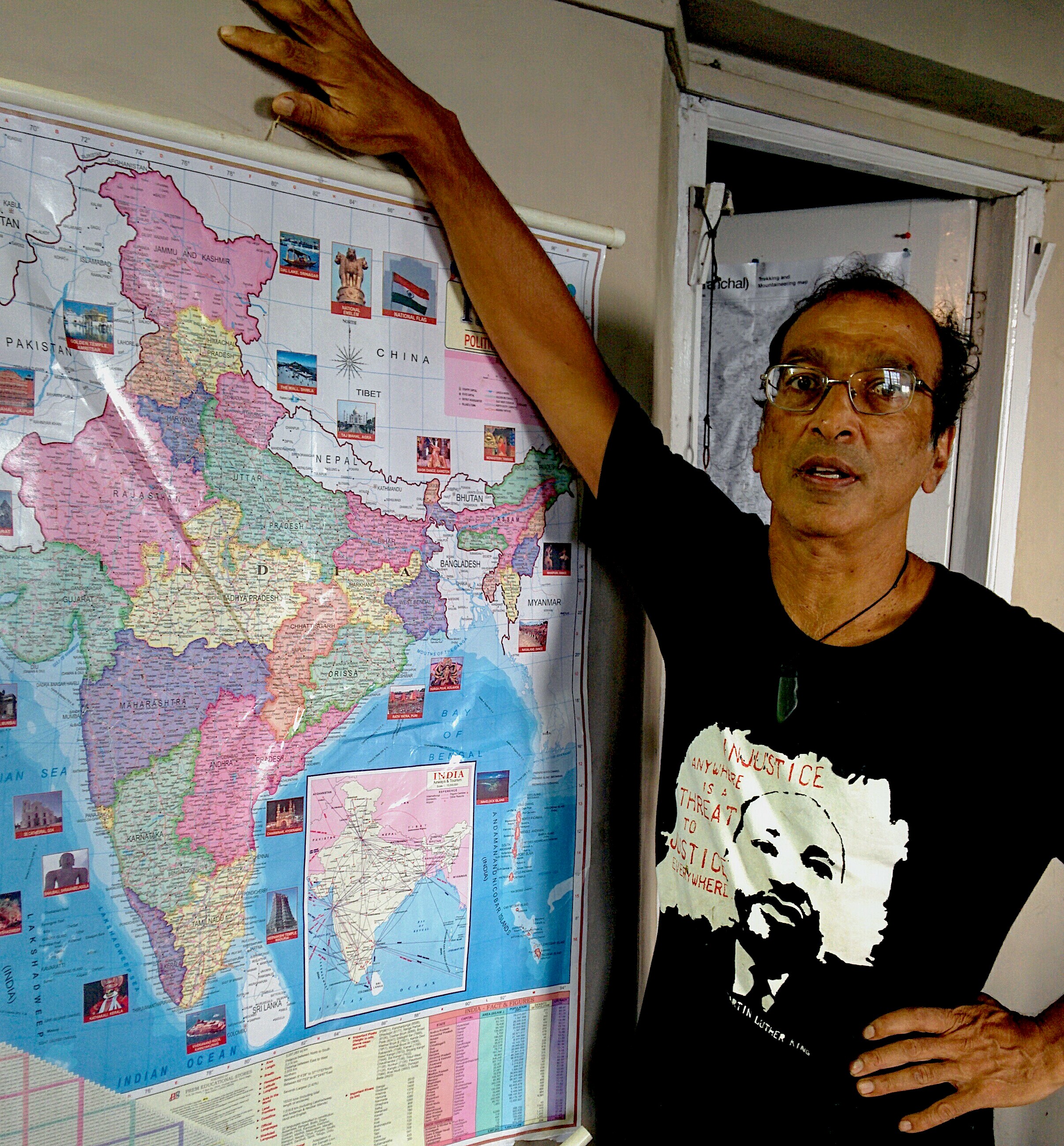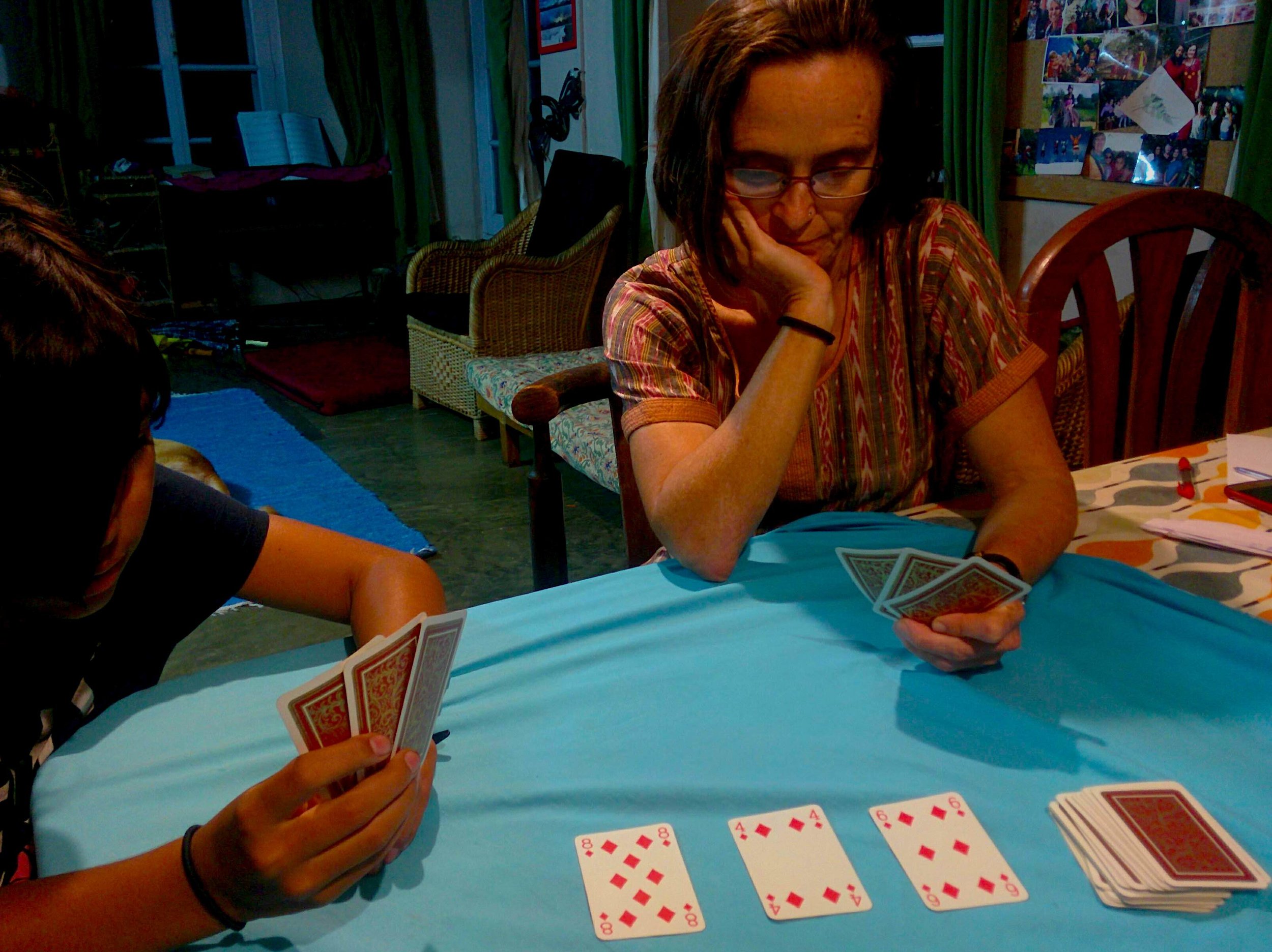Interrogation: its all in the body language.
See the body language in this interrogation. See the pared down context. There's no doubt who is in charge, whose questions are being asked, who is taking information, who has to give it (unwillingly and the minimum required). See the pen, pointed like a smoking gun right at the heart of the matter. One can imagine the string of questions: Where were you at 9 pm on 3 October? What were you doing? Who was with you?... Its a template, each answer another piece of evidence the policeman is gathering for a picture he's already built up. He's just trying to fit this suspect into that picture. That’s the end point. If he doesn't talk they'll do it again tomorrow, following the same line of questioning. They both know the drill: the cop knows what he needs to know, what methods to use how hard to push. The suspect knows what to say and what not to, when to talk, how hard to resist.
Just like the policeman working over his suspect, development often works over a context and evaluations work over organisations. Pre-set templates, blueprints... everyone knows the drill. Evaluators even talk of interrogating their data. They already have a picture in mind, know what information they need. Projects do situational analyses knowing what the next step is. No doubt who is in control, whose line is being followed. Its all about seeing where and how the context or the organisation fits into an already-defined solution. Development like this is rational, formalised, predefined ... powerful.
And, for me, all wrong. Template development leaves participants head down, defensive and boxed in. I prefer spaces without preset answers, complex spaces out beyond blueprints. Out there, rather than applying best practise, its about “maximising the emergence of beneficial coherence” (a phrase David Snowden explains in this short video https://www.youtube.com/watch?v=Miwb92eZaJg). I accept, no embrace, development that does not control and cannot even define what 'should' happen. For me the only 'should' is that development should allow, in fact, encourage, solutions to emerge from the context.
My development metaphor then is conversation not interrogation. Here's a picture: me conversing with my sister-in-law Ros, shoulder-to-shoulder on a truck with remote Tibet unfolding around us. We're on an exploratory expedition- the world first traverse of the Mekong- a magical shared journey through a landscape of surprise and wonder- a phrase that also describes what a good conversation is.
conversation... a journey through a landscape of surprise and wonder.
This is a different picture. It is not clear who is in charge or where it ended. Who can discern what we're talking about? Perhaps we're discussing our route, or designing a bamboo bicycle or maybe we're on USA’s latest war crimes. There is no preset information either of us needed when we started conversing, no pre-defined end point. If we had this conversation again it would be entirely different. I do still have conversations with Ros (not enough because we live in different continents now). Every time I get to know more of her, myself and our place on this planet. Nothing is given except our ongoing relationship and, wherever we are, a connection to our context. That’s all.
Conversations are open ended, you do not know what you will talk about when you start, subjects emerge as conversation develops, participants are equally able to ask and listen, surprises happen, unplanned digressions might turn out to be crucial. Or they might just be unplanned digressions. Good conversation facilitates revelations and discoveries. You usually reveal more, not less, than you are asked and always discover more than you expected. All that is essential is a relationship between the participants and a connection to the space they're in.
Continuous two-way communication, rich in relationship, surprises, emergent results, connected to context and open ended....Development practice and evaluation methodology so often aren't like this. With different vision, different metaphors, they could be.
Comments?












